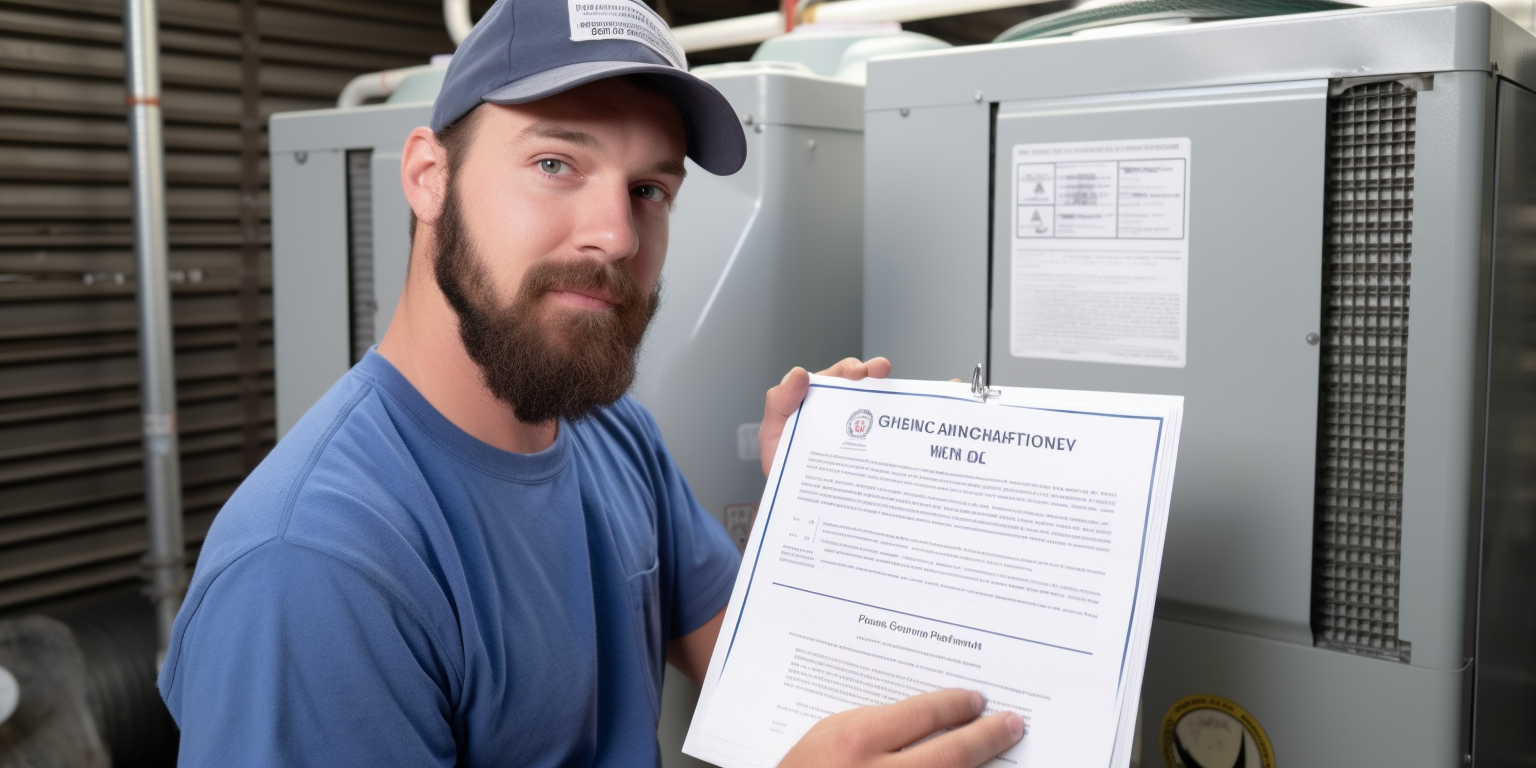Pursuing an HVAC certification online is an experience combining flexibility, convenience, and challenge. The learner navigates through a curriculum focusing on heating, ventilation, and air conditioning systems within the comfort of their own home or preferred environment. It offers the advantage of pacing the learning according to one’s schedule.
One key advantage is the ability to balance other commitments such as work or family alongside the certification process. This flexibility allows learners to study when it best suits them, be it early morning or late at night. Additionally, online learning eliminates commuting time, making it a time-efficient alternative to traditional classroom learning.
However, online learning comes with its own set of challenges. The absence of face-to-face interaction may limit the opportunity for hands-on practice, which is crucial in the HVAC field. This lack of practical exposure may result in a steep learning curve when transitioning to the professional world.
Another potential drawback is the need for self-discipline and motivation. Without the structure of a traditional class, some learners may struggle to manage their time effectively, leading to procrastination.
Lastly, not all online courses offer comprehensive support services. Some learners may find it challenging to clear their doubts or gain feedback on their progress.
Getting an HVAC certification online provides flexibility and convenience but also requires self-discipline and motivation. It suits individuals who thrive in self-paced environments but may not be the best fit for those who prefer hands-on learning or need a structured learning schedule. It’s a decision that requires careful consideration of one’s learning style, personal circumstances, and professional aspirations.
What are the requirements for obtaining an HVAC certification in California online?
Obtaining an HVAC certification online in California involves several steps. First, an aspiring HVAC technician must complete a high school diploma or equivalent. Next, they need to enroll in an accredited online HVAC training program that meets California’s standards. This course typically covers subjects such as refrigeration, heating systems, air conditioning, and ventilation.
The duration of the training program can range from six months to two years, depending on the depth of the curriculum and the student’s pace. The coursework is designed to provide a comprehensive understanding of HVAC systems, including their installation, maintenance, and repair.
After completing the online training program, the next step is to gain hands-on experience. California requires HVAC technicians to have a minimum of two years (or 3,000 hours) of practical experience. This experience can be acquired through an apprenticeship or on-the-job training under the supervision of a licensed HVAC professional.
Once the training and experience requirements are met, it’s time to apply for the HVAC certification exam. This exam evaluates the applicant’s knowledge and skills in HVAC systems and operations. The applicant must pass this exam to receive their HVAC certification.
Upon successfully passing the exam, the applicant is awarded the HVAC certification, marking them as a qualified HVAC technician in California. They are now legally permitted to work on HVAC systems in the state.
It’s important to note that the certification needs to be renewed periodically to ensure the HVAC technician’s skills are up to date. This renewal typically involves continuing education courses, which can also be completed online.
How long does it take to complete an online HVAC certification program in California?
HVAC certification programs provide the necessary training for individuals aiming to work in the heating, ventilation, and air conditioning industry. In California, online HVAC certification programs offer a flexible option for those who wish to pursue this career path. Completion time varies depending on several factors, including the specific program, the individual’s pace of learning, and the level of certification sought.
The most basic online HVAC certification programs can typically be completed in as little as six months. However, more comprehensive programs, which provide in-depth knowledge and skills, can take up to two years. These longer programs often include modules on advanced topics such as energy efficiency, system design, and complex HVAC technologies.
In California, individuals also have the option of pursuing an associate degree in HVAC. This typically takes about two years to complete and provides a more in-depth education. It combines HVAC training with general education courses, offering graduates enhanced job prospects and higher earning potential.
Despite the time commitment, earning an HVAC certification online provides significant benefits. It enables individuals to learn at their own pace and schedule, making it an ideal option for those juggling other commitments such as work or family. In addition, online learning eliminates the need for travel, saving both time and money.
Are there any prerequisites before enrolling in an online HVAC certification program in California?
Before enrolling in an online HVAC certification program in California, several prerequisites must be met. Firstly, an individual must have a high school diploma or its equivalent. This requirement is fundamental as the program often incorporates concepts of basic math, physics, and chemistry.
Secondly, understanding of basic computer skills is essential. As this is an online program, coursework, assignments, and examinations are handled digitally. Familiarity with email, word processing, and online navigation can greatly aid in the learning process.
Thirdly, it is beneficial, though not mandatory, to have some prior experience or knowledge in the HVAC field. This could include work experience, vocational training, or even DIY home improvement projects involving HVAC systems.
Finally, the individual must be willing to commit time and effort. Online HVAC certification programs, while flexible, demand a consistent level of dedication and discipline to succeed.
Before enrolling, it’s advised to research different programs and make sure they are accredited. It’s also good to check whether the course gives enough hands-on experience, as practical skills are crucial in this field. This ensures the chosen program will provide a well-rounded and recognized education, preparing the student for a successful career in the HVAC industry.
What are the costs associated with obtaining an HVAC certification online in California?
Obtaining an HVAC certification online in California comes with several costs. Initially, prospective students must consider the tuition fees. These can vary widely, depending on the specific program and the level of certification sought. Typically, tuition fees range from $1,000 to $3,000.
Students also need to budget for books and training materials. These resources often cost between $200 and $500. While some online programs include these materials in their tuition fees, others do not.
Another cost to consider is the examination fee. This fee is typically around $200. After completing the education program, students must pass a certification exam. In California, this is the EPA 608 Certification exam.
Additionally, there could be incidental costs. These are any unexpected expenses that may arise during the course of study. These might include additional training materials or supplementary courses to bolster a student’s understanding of complex concepts.
Lastly, there is the cost of time. Though not a monetary expense, the time commitment required to complete an HVAC certification online should not be underestimated. Prospective students must factor this into their decision to pursue certification.
Are there any financial aid options available for online HVAC certification programs in California?
Prospective students seeking online HVAC certification programs in California have multiple financial aid options at their disposal. First, there are federal grants, which do not require repayment. These grants get awarded based on the student’s financial need, and one can apply for them through the Free Application for Federal Student Aid (FAFSA).
Second, students can explore scholarships. These are funds that a variety of organizations, institutions, and individuals offer. They often have specific eligibility criteria, such as academic performance, personal backgrounds, or career plans.
Another option is taking out student loans. While this involves repayment, these loans offer lower interest rates than typical bank loans. Public and private bodies provide them, and it’s important to understand their terms before making a commitment.
Work-study programs are also available. These programs allow students to work part-time while studying, providing them with an income to help cover their education costs.
Lastly, some online HVAC certification programs may offer their own financial aid packages. These could include discounted tuition, installment payment plans, or even in-house scholarships.
How is job placement after obtaining an online HVAC certification in California?
Job placement rates are promising for individuals who obtain an online HVAC certification in California. This certification is a stepping stone into an industry that’s experiencing a surge in demand. As the need for climate control solutions increases, so does the demand for qualified HVAC technicians.
The state of California, in particular, is a hotbed of opportunities. Due to its vast population and diverse climate, the need for HVAC professionals is always high. After obtaining an online certification, a large number of graduates find placement in various sectors. These include residential, commercial, and industrial settings.
Various factors contribute to the notable job placement rate. Chief among them is the comprehensive training. It equips graduates with the necessary skills and knowledge to excel in this field. The coursework covers essential aspects, such as HVAC systems installation, maintenance, repair, and safety protocols. Additionally, practical skills acquired online can be directly applied in the field.
Moreover, California’s green initiatives and strict energy efficiency laws further fuel the demand. These regulations require HVAC systems to meet specific standards. As such, there’s an increasing need for certified technicians, capable of installing and maintaining these systems.
Can the HVAC certification obtained online in California be used in other states?
Yes, if you obtain HVAC certification online in California, you can use it in other states. Reciprocity agreements between states make this possible. These agreements allow HVAC technicians to use their certification no matter where in the United States they are working. However, it’s important to note that not all states have these agreements in place, so research is essential.
In a reciprocity agreement, one state agrees to recognize the HVAC certification granted by another state. This agreement allows HVAC technicians who have undergone training and certification in California to apply their skills in other participating states without needing to repeat their training. It’s a beneficial system that promotes efficiency and mobility in the HVAC industry.
However, while this system is in place, it’s not universal. Each state has its own specifications and requirements for HVAC certification. Some states may require additional exams or practical experience before an out-of-state certification is recognized. Others may have no reciprocity agreement with California, requiring HVAC technicians to undergo full training and certification in their state.
As an HVAC technician, if you plan to work in another state, verify whether your certification is transferable. You can do this by consulting the HVAC certification board or similar regulatory body in your target state. It’s also a good idea to familiarize yourself with the specific HVAC laws and regulations in that state, as they can differ significantly.
Key Takeaways:
– The cost of an online HVAC certification program in California encompasses tuition, incidental expenses, and the investment of time.
– There are multiple financial aid options available for students, including federal grants, scholarships, student loans, work-study programs, and potential aid packages from the certification program itself.
– Job placement rates are favorable in California due to the growing demand for HVAC professionals in residential, commercial, and industrial sectors.
– California-issued certifications enjoy reciprocity in other states. However, it’s crucial to conduct your own research because not every state recognizes these certifications without extra requirements.



